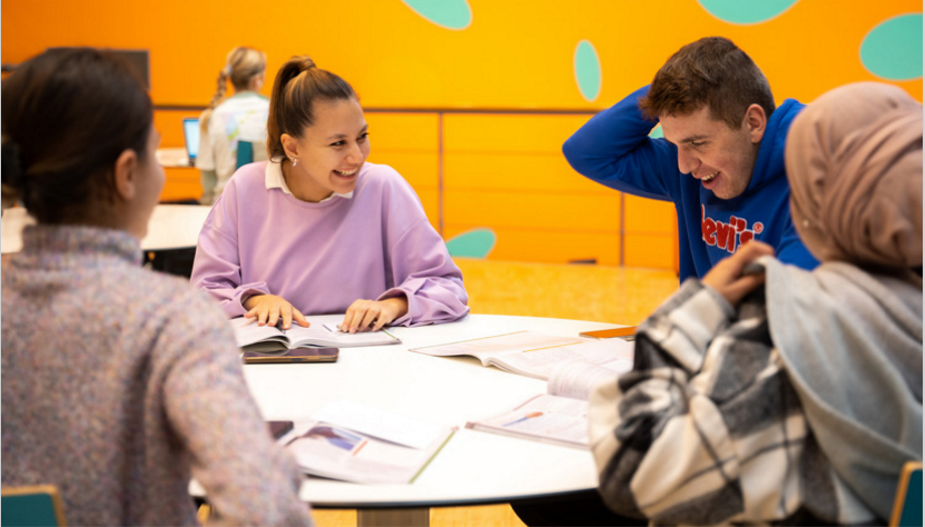Inquiry-based learning with impact
2 November 2022
The Hague University of Applied Sciences presents new 2023-2028 strategy. How do we increase opportunities for people in our metropolitan environment? How do we create a sustainable energy supply and circular economy...

The Hague University of Applied Sciences presents new 2023-2028 strategy. How do we increase opportunities for people in our metropolitan environment? How do we create a sustainable energy supply and circular economy? How do we ensure that the elderly can continue to live comfortably in their own homes for longer, and how does new technology help with that? These are some of the regional and international social issues for which The Hague University of Applied Sciences (THUAS) develops answers every day. We do this through education and research, in close collaboration with the professional field in the region.
In the coming years, we are going to continue developing THUAS. The world is changing rapidly, which is why we want to be agile and ahead of developments around us. “We learnt from the COVID-19 pandemic that we need to be able to deal with unexpected developments and the uncertainties they cause. This requires a healthy degree of agility,” says Elisabeth Minnemann, President of the Executive Board of THUAS. She continues: “We have learned that a crisis like the COVID-19 pandemic can lead to innovation. That it can accelerate the pace at which we make changes. We are taking these lessons on board in the course we have set for the next six years.”
Inclusive community
The new strategic plan links a high ambition for teaching quality and research with a different way of organising. This is necessary so that we can deal with changing circumstances more quickly and more efficiently. Minnemann continues: “Therefore, we need to organise our teaching and research in such a way that high quality and customisation are easier to achieve.” The well-being of students and staff members is paramount. Also for Youri Hemelop, Chair of the General Council. “Working towards an attractive learning and working environment. In this process, we want to involve everyone. This should be constructive, but critical. In this way, we can make the best use of THUAS’s potential.”
Sustainable and just world
As a University of Applied Sciences, we are primarily responsible for providing teaching and research of high quality. But our responsibility goes beyond our primary tasks. Minnemann adds: “As an international knowledge institution, with a very diverse community, strong regional embedding and a broad palette of faculties and centres of expertise, we are in a unique position to contribute to a sustainable and just world. The United Nations’ Sustainable Development Goals are therefore firmly embedded in our teaching, research, operations and accommodation.”